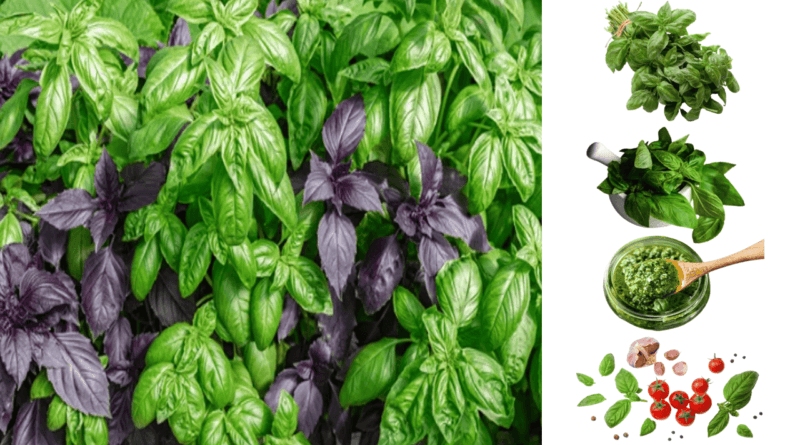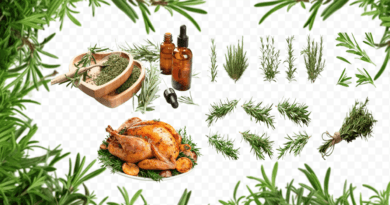Ocimum Basilicum : Basil
Ocimum basilicum, commonly known as basil, is a fragrant herb cherished worldwide for its culinary, medicinal, and cultural significance. This versatile plant not only elevates dishes with its distinct aroma but also boasts numerous health benefits. In this article, we’ll explore its origins, uses, benefits, and cultivation techniques, offering a complete guide to understanding and utilizing this remarkable herb.
Origins and History of Ocimum Basilicum
Basil traces its roots back to tropical regions of Central Africa and Southeast Asia. Historical records suggest its presence in ancient Egyptian, Greek, and Roman civilizations. In these cultures, basil symbolized love, protection, and spirituality. Today, it thrives in gardens and kitchens across the globe, earning its place as a staple herb in countless cuisines.
Varieties of Ocimum Basilicum
Ocimum basilicum encompasses a wide range of varieties, each with its unique flavor profile and appearance:
- Sweet Basil: The most common type, ideal for Italian dishes like pesto.
- Thai Basil: Known for its spicy, anise-like flavor, perfect for Asian cuisine.
- Lemon Basil: Characterized by its citrusy aroma, often used in salads and seafood.
- Holy Basil (Tulsi): Revered in Ayurvedic medicine for its healing properties.
Understanding these varieties helps in selecting the right basil for your needs.
Health Benefits of Ocimum Basilicum
Basil is not just a culinary delight; it’s also packed with essential nutrients and health-promoting compounds. Here are some key benefits:
- Rich in Antioxidants: Basil contains powerful antioxidants like flavonoids and polyphenols, which combat oxidative stress.
- Anti-Inflammatory Properties: Its essential oils, such as eugenol, help reduce inflammation.
- Supports Digestive Health: Basil aids digestion and soothes an upset stomach.
- Boosts Immunity: The herb strengthens the immune system with its antimicrobial properties.
Incorporating basil into your daily diet can contribute to overall well-being.
Culinary Uses of Ocimum Basilicum
Basil shines as a culinary herb, adding flavor and aroma to various dishes. Some popular uses include:
- Pesto Sauce: A classic Italian sauce made with fresh basil, garlic, pine nuts, and Parmesan cheese.
- Salads: Fresh basil leaves add a burst of flavor to Caprese salad.
- Soups and Stews: Basil enhances the taste of tomato soup and hearty stews.
- Beverages: Basil-infused drinks, such as lemonade or herbal teas, offer a refreshing twist.
Experimenting with basil in your recipes can unlock a world of flavors.
How to Grow Ocimum Basilicum
Growing basil at home is both simple and rewarding. Follow these steps for a thriving basil plant:
- Choose the Right Location: Basil thrives in warm, sunny spots with at least 6 hours of sunlight daily.
- Use Well-Draining Soil: Ensure the soil is nutrient-rich and drains well.
- Water Regularly: Keep the soil consistently moist but not waterlogged.
- Prune Frequently: Regular pruning encourages bushier growth and prevents flowering.
With proper care, you can enjoy a steady supply of fresh basil year-round.
Sustainability and Environmental Impact
Basil cultivation supports sustainable agricultural practices when grown organically. It attracts pollinators like bees, promoting biodiversity. Additionally, home-grown basil reduces carbon footprints associated with transporting store-bought herbs.
In Summary,
Ocimum basilicum stands as a symbol of flavor, health, and tradition. Its versatility in the kitchen, coupled with its impressive health benefits, makes it a must-have in every household. Whether you’re a chef, gardener, or health enthusiast, basil offers something valuable for everyone.
References
- Smith, J. (2021). The Healing Power of Basil. Herbal Press.
- Patel, A. (2020). Basil: Culinary and Medicinal Uses. Green Earth Publishing.
- World Health Organization. (2019). Medicinal Plants for Health and Wellness.




